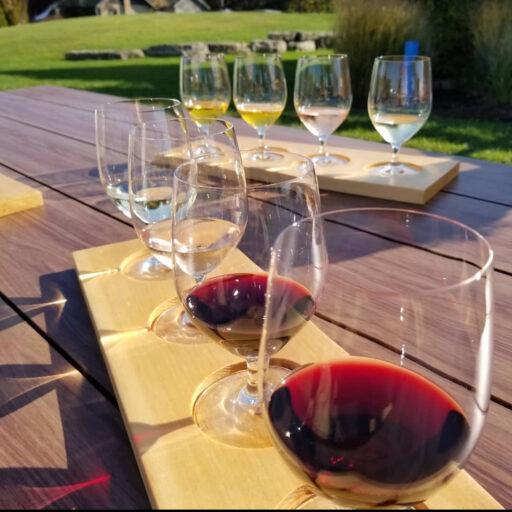When I used to think of Portuguese wines my initial thoughts were of the Douro River, the coastal town of Porto and of course, Port Wine. On May 1, 2024, I had the opportunity to change this perspective by attending the Get Away with the Wines of Portugal, hosted at The Well in Toronto, Ontario.
With over 24 wine producers from Portugal in attendance, offering samples of rough 200 different wines, I can say my experience with this country’s wines now goes beyond Port. This was truly a new wine experience.


Prior to attending the event I did a little research (my type A personality is always at work!). I wanted to understand why Portugal has never been on my wine radar. I also wanted to understand why this region did not seem to be as frequently profiled as others in many of the wine articles I have come across.
What I learned is much of Portugal’s existence has been in isolation from the rest of the Old World wine regions. Particularly, with its geographical position between Great Britain and the rest of Europe, Portugal’s wine industry was often the unintended victim or beneficiary of ongoing conflicts between these nations (particularly any combinaiton of Britain, France and Spain) during the 18th and 19th centuries. This also meant that as other wine producing nations were expanding their wine industries, sharing new ideas and sometimes exchanging grape varietals, such as Cabernet Sauvignon from France’s Bordeaux region, Portugal was excluded. Portugal’s grapes and wine industry remained alone to survive on their own terms, without external influence or interference.
Even during the Phylloxera infestation (a topic that needs its own dedicated discussion) of the 1860s to the late 1930s, that nearly destroyed the wine industries in much of Europe, parts of the United States and other countries, Portugal and its wines were unaffected.
This history of isolation afforded me the opportunity to sample wines truly indigenous to Portugal, wines that are relatively without any injection of foreign grapes. I doubt the flavours imparted by these uniquely Portuguese grapes would be easily replicated by wines produced in more popular regions such as France, Italy, parts of the United States or even New Zealand. These named countries often plant many of the same grapes such as Merlot, Chardonnay and Cabernet Sauvignon to name a few (although the grapes would be considered clones for the original), resulting in wines with similar taste profiles.
The same is not true of Portugal. Its long history of isolation has produced distinctly beautiful wines today.
During the wine tasting event I sampled a glass of Altano Naturalmente Branco 2022 produced in the Douro region. This fruity white wine is a blend of Malvasia, Viosinho and Moscatel Galego grapes that together created a slightly dry wine, balanced with good acidity. Each sip gave off the scent of tropical fruits like pineapple, passion fruit and melon. While my description could hold true for more commonly known white wines, the flavours created by these grapes whose names I never previously heard of, created a flavour profile I have never experienced before.

Another wine I sampled from the Douro region, and that I consider the most memorable of the evening, was the Quinta Vale D. Maria 2020. The nearest comparison I can make of this wine is a Cabernet Sauvignon. If it is possible to describe a wine as an elegant elder statesman, that would be this wine. It was robust, well-round, with notes of smokiness and leather, a product of the several grapes including Tina Roriz, Tina Francisca, Tinta Amarela and Sousão. This wine was my favourite.

After an evening of trying various wines, some whose names I struggled to pronounce, I did not have a sip of Port. I have no idea if any of the vendors had Port wine among their offered samples. It would not have mattered. I deliberately wanted my experience at Get Away with the Wines of Portugal to be an occasion to explore new Portuguese wines. And it was.
Saúde to more Portuguese wine!
-SJ Gabriel
Blog: http://atippleofwine.com
Email: atippleofwine@gmail.com


Leave a Reply